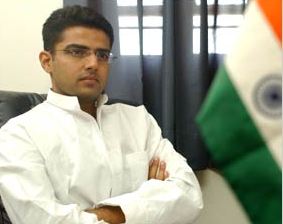 The Department of Telecommunications (DoT) today announced that all base transceiver stations (BTSs/ Mobile Tower), which have not yet been certified for adherence to mobile tower radiation standards, will have to pay a penalty of Rs. 5 lakhs each.
The Department of Telecommunications (DoT) today announced that all base transceiver stations (BTSs/ Mobile Tower), which have not yet been certified for adherence to mobile tower radiation standards, will have to pay a penalty of Rs. 5 lakhs each.
In order to address this concern of people over Mobile Tower Radiation health Hazard, Mr. Sachin Pilot, the Union Telecom Minister of State, observed that Mobile service operators and infrastructure companies which own passive telecom infrastructure have an obligation in meeting the statutory requirement after being partners with the Government in accepting and adopting the norms prescribed.
Even though there is no direct evidence of negative health-related implication of these radiations, the Government will seized of the concerns raised in this regard and as such made self-certification a basic minimum requirement that Telecom Companies must adhere to.
All BTSs which have not been certified by November 15, 2010 or are not compliant face a penalty of Rs. 5 lakhs each.
 As the number of mobile towers has grown exponentially in the country to handle mobile traffic resulting from increased teledensity, there have been some concerns raised by media, civil society, research organizations, and Members of Parliament on possible health related effects of electromagnetic emissions from mobile towers.
As the number of mobile towers has grown exponentially in the country to handle mobile traffic resulting from increased teledensity, there have been some concerns raised by media, civil society, research organizations, and Members of Parliament on possible health related effects of electromagnetic emissions from mobile towers.
There are a total of 5,60,571 Base Transceiver Stations (BTSs) mounted on mobile towers for mobile communications in India. To ensure that electromagnetic emissions from these BTSs adhere to the standards adopted by India, which are based on the international standards prescribed by the ICNIRP, necessary amendments were carried out in the Access Service Licenses on November 04, 2008. The Industry was required to self-certify each of their BTSs by May 15, 2010, and submit the same to TERM Cells. On the request of the Industry, the deadline was, however, extended to November 15, 2010.
The Guidelines adopted by India are based on recommendations of ICNIRP and endorsed by the World Health Organization (WHO). Some countries like Australia, China and some countries of the European Union, however, have adopted much more stringent standards.
Sachin Pilot had earlier called a meeting of the operators and emphasized that self-certification should be completed by November 15, 2010. Beyond this random testing of emission levels would be done across the country, the Minister had said.















